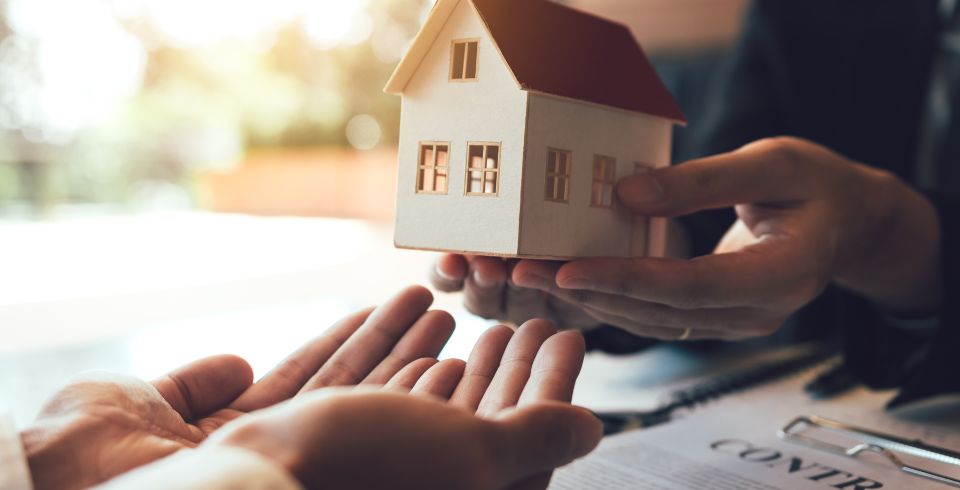Student Loans
Great Lakes Credit Union has everything you need to help manage your money and plan for the future.

Money SmartsJune 27, 2022
On May 31, 2022, President Biden declared June 2022 as National Homeownership Month to “recognize the importance of housing and reaffirm our commitment to ensuring that everyone has a place to call home.”
Unfortunately, a rising share of U.S. citizens say the availability of affordable housing is a major problem in their local community. According to a 2021 Pew Research study, in October 2021, about half of Americans (49%) said this was a major problem where they live, up 10% from early 2018. In the same 2021 survey, 70% of U.S. locals said young adults today have a harder time buying a home than their parents’ generation did.
Disparities with homeownership extend far past generational opportunity gaps as well. In the fourth quarter of 2021, 74% of White Americans owned a home, compared with 43% of Black Americans and 48% of Hispanic Americans. These inequalities in homeownership have persisted over decades.
Homeownership is an out-of-reach dream for most Americans
A variety of factors have set the stage for the financial challenges U.S. homeowners face in the housing market, including incomes that haven’t kept pace with housing cost increases and a housing construction slowdown. A surge in home buying, spurred by record-low mortgage interest rates during the COVID-19 pandemic, has further strained the availability of homes.
Right now, the average American cannot afford to buy the average house that's on the market. Construction costs have risen by 21%, labor costs have risen by 15%, and regulatory compliance costs are going back up.
Statistics show that a result of these rising costs, homeownership and the opportunity to build and pass down wealth through it is unattainable for many Americans, especially people of color.
Federal reforms aim to expand access to homeownership opportunities
To assist with today’s housing affordability challenges, the current administration has launched an effort to combat racial discrimination in housing with two Federal reforms – the Property Appraisal and Valuation Equity Action Plan.
These reforms were implemented to help expand access to homeownership opportunities for first-time home buyers and minority homebuyers, and help ensure that people of color can receive a fair appraisal for their homes.
To tackle the root causes of housing affordability, an additional plan – the Housing Supply Action Plan – has been put in place. The plan is focused on closing the nationwide shortfall of housing for purchase and rent in five years through a variety of measures: incentivizing States and localities to create the conditions for more housing, improving financing tools for a wider range of housing arrangements, enhancing existing forms of financing for housing construction, and addressing other barriers to housing supply and affordability.
Realtors’ Role in Building Equitable Housing Systems
Organizations such as the National Association of Realtors (NAR) are working with Congress, the administration, and industry partners to expand homeownership, from championing policy proposals to increase housing supply to supporting initiatives such as the Black Homeownership Collaborative's 3by30 plan to add three million net new Black homeowners by 2030.
Realtors® play an important role in building a more sustainable and equitable housing systems by helping homebuyers understand what counseling services and resources are available to them in order to close the equity gap.
Why Are First-time Homebuyers a Shrinking Part of the Real-estate Market?
The pandemic’s rush for property sent the homeownership rate to 65.5% in 2020, an increase of 1.3% from 2019, the National Association of Realtors said. However, those purchasing tend to be wealthier than the typical U.S. household and already own a home, according to Zillow’s 2021 housing trend report.
Homebuyers have a median household income of about $90,000, compared with the national median of about $66,000, Zillow found. Given the challenges of the pandemic real-estate market, that means that first-time homebuyers are a shrinking part of the market. First-time buyers represented 37% of all buyers in 2021 compared with 43% in 2020, Zillow said.
Up to this point, housing prices and available houses on the market have been the main challenges for middle-to-lower income home buyers. Now, the recent increase in the prime lending rate has pushed mortgage loan rates higher and is affecting affordability as well.
Achieve Your Dream of Homeownership with GLCU’s Free Housing and Financial Counseling
To help increase affordability and accessibility for those struggling to attain homeownership, Great Lakes Credit Union (GLCU) has a Housing and Financial Counseling Team that will partner with you to assess your financial situation, create a plan, and realize your dream of homeownership.
Great Lakes Credit Union is one of less than ten credit unions in the country that is also a Housing Counseling Agency approved by the U.S. Department of Housing and Urban Development. Homeownership counseling is a free, objective resource that is open to anyone in the state of Illinois; GLCU membership is not a requirement for counseling.
In order to help you prepare for home ownership, our team will partner with you to:
For first-time home buyers, in addition to the above, we assist you to:
After working with our team, you will receive a First Time Homebuyer Certificate to qualify for affordable loan programs and down payment assistance.
For more information and to sign up for workshops, contact our Housing & Financial Counseling Team at 224.252.2620 or visit glcu.org/housing.